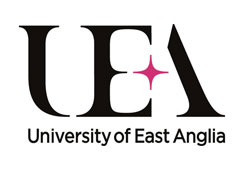Influencer Marketing – UEA Marketing Club Event

The continued chase for authentic advertising
Positivity… authenticity… relatability… these are just some of words being thrown around when describing the new generation of YouTube influencers. It was this looming trend that had dragged many students and practitioners to the University of East Anglia to hear industry expert Ian Shepard, speak about the ever-growing presence of influencers in the modern marketing world.
Despite the lugubrious weather many still ventured to Norwich to hear Ian speak. On arrival, guests were greeted with an array of hot drinks and snacks, and given a chance to familiarise themselves with guests. After this, Philip Preston, the from CIM, warmed the floor by welcoming in members and giving them the lowdown of future CIM events and the importance of the CIM itself.
We were then blessed to welcomed Ian Shepard to the floor. Ian began by briefly unravelling his background which included stints at Turner Broadcasting, Universal Music, BT sport and Disney. However, after becoming frustrated with that world, Ian realised the industry was changing and that consumers were turning their interests to social media platforms such as YouTube. It was this that has led him to become the founder and CEO of The Social Store, as well as chairmen of The Business of Influencers.
Ian began by explaining how YouTube is one of the largest and fastest growing social websites. With its diverse customer base, it has made it one of the most lucrative social platforms for businesses. And it’s not just the size of the platform that interest’s marketers but the quality of engagement it has with its customers. Take Tiana Wilson for example, a 10-year-old girl who works closely with Ian. Her videos on average collate 5 million views. This would put her above the top 4 nickelodeon programmes. Ian did not stop here explaining that the average view time for Tiana’s videos is an astonishing 7 minutes. In comparison YouTube adverts lose over half of their viewers within the first 10 seconds.
This is why companies like Daniel Wellington have attributed a significant amount of growth to this platform. Other brands like Nike and ASOS have also jumped on the influencer bandwagon. According to Ian, these companies are giving almost all creative control to these YouTubers which in turn makes their videos almost a product review rather than a paid advertisement. Ian explained that it is this that differentiates it from celebrity endorsement or paid advertising. Influencers are authentic and their content is driven by them rather than being forced by a business.
After Ian’s talk he was bombarded with questions with a common theme occurring; what makes these influencers so effective? It seemed pretty simple. Firstly, they are highly relatable due to the fact that most live relatively normal lives. They go to school, they have homework, they may have a job, they face normal day to day problems like the rest of us and that in turn makes the trustworthy. It’s trustworthiness that in turn makes them authentic. It is this authenticity that allows customers to trust their opinion because they know that these people are being honest and genuine. Finally, from a business perspective these influencers ooze positivity which further helps promote products as there is rarely negative connotation.
After Ian weathered some gritty questions participants got to form into groups and discuss how universities could use this same technique to increase enrolment. Overall groups agreed the YouTubers authenticity could be a useful tool in such a scenario as personal reflections of University life gives a creditable review in which students can trust.
As the event came to an end, it was clear that many were starting to see the value of these influencers. The event was not only informative but also allowed students and marketers to asked questions and debate the topic at hand. For many it seemed certain that if these influencers could stay positive, authentic and relatable then influencer marketing is going to continue to rise.
By-line: Jack Bear, UEA Marketing Student
